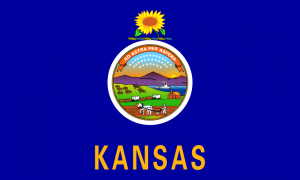Kansas’ Attempts To Move DREAMers Into The Workplace
 It’s LaVerne Bitsie-Baldwin’s job to focus on Latinos and other minorities as the Director for the Multicultual Engineering Program at Kansas State University. But, in the course of doing her job in the past few years as Kansas’ Latino population began to show up at the university, it became clear that Latino students had needs other minorities did not. Specifically, they didn’t qualify for aid or jobs because some were undocumented.
It’s LaVerne Bitsie-Baldwin’s job to focus on Latinos and other minorities as the Director for the Multicultual Engineering Program at Kansas State University. But, in the course of doing her job in the past few years as Kansas’ Latino population began to show up at the university, it became clear that Latino students had needs other minorities did not. Specifically, they didn’t qualify for aid or jobs because some were undocumented.
“In 2005 we started with 55 Hispanic students. In 2011 it was 123. Once we got to know students, a couple of them felt comfortable enough with me to talk about their status,” she told NewsTaco, noting that 4.6% of the school’s population is Latino. “The first [undocumented] student I knew of was in 2009 and since I know of three in the college, but there’s likely more.”
Take a minute to think about Kansas, the place where the author of SB 1070 ran for office, the place where a state rep said undocumented immigrants should be shot like hogs from helicopters. In this environment, Bitsie-Baldwin, who is of the Navajo tribe, and her department are working not only to find financial aid for these engineering students, but experimenting with different ways to help them become gainfully, legally employed.
“I have funding through university scholarships that are not tied to state or federal funds, “ she told us. “And we just started discussions with companies, asking whether students can work with international companies, and whether they can provide them visas.”
What was also very interesting about the discussion with Bitsie-Baldwin is to realize that, because our current immigration system is outdated, companies interested in hiring a DREAMer do not have protocols or procedures in place to do so. Could a student travel to Mexico, at what point in the hiring process does legal status become an issue, will/can companies sponsor students?
“We need engineers, when the Baby Boomers retire, we are gong to need so many engineers — especially in the technology field. But when I bring up undocumented students, there is no process for [them] I’ve found yet. We need to keep our talent,” Bitsie-Baldwin told us, adamant that the U.S. needs every educated engineer available to be able to compete with economies like China. Without talent, companies won’t open shop in the U.S., for example, she said. This is why she and her department have begun to reach out to companies to see what opportunities are available to DREAMers once they graduate.
Ultimately, resolution for DREAMers and the avenues they can use to legalize their status is part of a much larger picture, but efforts in places like Kansas by people like Bitsie-Baldwin certainly contribute greatly to the solution.
[Photo By zscout370]
